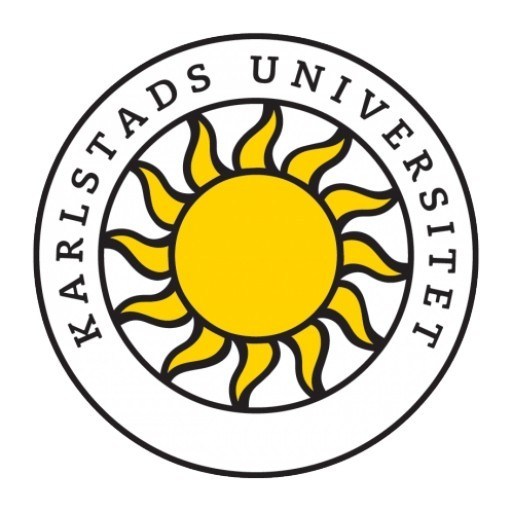Industrial Management at the Slovak University of Technology in Bratislava is a comprehensive natural science and technical university program designed to prepare students for leadership roles in the industrial sector. The program combines theoretical knowledge with practical skills, ensuring graduates are equipped to optimize production processes, implement innovative solutions, and manage complex industrial systems effectively. The curriculum covers a broad spectrum of subjects, including engineering principles, management strategies, logistics, quality control, and information technology, providing students with a multidisciplinary education that aligns with current industry demands. Emphasizing sustainability and efficiency, the program aims to develop professionals capable of improving operational performance while considering environmental and economic factors. Students gain hands-on experience through laboratory work, industry internships, and project-based learning, enabling them to apply learned concepts in real-world scenarios. The program also fosters soft skills such as teamwork, communication, and problem-solving, essential for successful leadership. Graduates of Industrial Management can pursue careers in manufacturing, logistics, consulting, and technology companies, among others. They are prepared to innovate and lead in dynamic, globalized industrial environments. The program's interdisciplinary approach ensures that students are well-versed in both technical and managerial aspects, making them valuable assets to employers seeking adaptable and forward-thinking professionals. With its strong focus on modern industry trends and practices, the Industrial Management program at the Slovak University of Technology in Bratislava is designed to cultivate not only technically skilled engineers but also strategic thinkers capable of driving sustainable industrial development.
Industrial Management at the Slovak University of Technology in Bratislava is a comprehensive and forward-thinking program designed to prepare students for leadership roles in the dynamic world of manufacturing, services, and technology enterprises. This multidisciplinary curriculum combines core principles of engineering, management, and economics to equip graduates with the skills necessary to optimize production processes, improve operational efficiency, and implement innovative solutions in various industrial sectors. Students will gain a solid foundation in areas such as production planning, quality management, logistics, supply chain management, project management, and IT systems, all within the context of modern industry practices. The program emphasizes the integration of theoretical knowledge with practical applications, ensuring students are well-prepared for real-world challenges. Throughout the coursework, students will have the opportunity to engage in case studies, laboratory experiments, and internships that foster critical thinking and problem-solving abilities. Special attention is given to sustainable development and the adoption of Industry 4.0 technologies, including automation, data analytics, and digitization strategies, which are transforming the landscape of industrial management. Additionally, students will develop essential soft skills such as leadership, teamwork, communication, and strategic planning, which are crucial for effective management roles. The faculty comprises experienced specialists and researchers dedicated to providing high-quality education and mentoring. Upon graduation, students will be capable of managing complex industrial processes, implementing innovative solutions, and contributing to the continuous improvement of organizational performance. The program aims to produce versatile professionals who can adapt to rapid technological changes and contribute to the competitiveness and sustainability of industry on both national and international levels.
The Industrial Management programme at the Slovak University of Technology in Bratislava requires applicants to have completed secondary education with a strong foundation in technical or scientific subjects. Prospective students must submit an application form along with certified copies of their secondary school diploma and transcripts demonstrating their academic achievements. English language proficiency is essential; applicants must provide proof of their command of English, typically through standardized tests such as TOEFL or IELTS, unless they come from an English-speaking country or have completed previous education in English. The programme also expects applicants to demonstrate motivation and interest in industrial processes, management, and engineering principles, which can be evidenced through a motivation letter or interview where applicable.
Admissions are competitive, and the university looks for candidates with high academic performance, particularly in mathematics, physics, and technology-related subjects. Some backgrounds in economics or business can also be beneficial but are not mandatory. The selection process may include an entrance examination assessing general knowledge, logical reasoning, and basic technical understanding; however, specific details about the examination content and format are available upon request from the admissions office.
International students must fulfill additional requirements, such as obtaining relevant visas and health insurance, and they may need to provide officially certified translations of their documents if not originally in English or Slovak. The programme has compulsory courses covering technical management, industrial processes, production planning, quality management, logistics, and sustainable development. Students need to complete a set number of ECTS credits, which include both compulsory and elective courses, as well as practical internships and a final project or thesis. To graduate, students must pass all examinations, demonstrate active participation, and successfully defend their thesis.
Furthermore, applicants should review the specific entry deadlines, which typically fall in the spring or early summer months, and ensure they prepare all necessary documentation well in advance. The university encourages early application to secure admission and facilitate visa processing if applicable. Candidates may also apply through the university's online portal and should pay attention to any supplementary requirements or assessments stipulated by the faculty in charge of the programme.
Financing studies of the Industrial Management program at the Slovak University of Technology in Bratislava are primarily based on a combination of public funding, student fees, and additional financial aid options. The university offers a tuition fee system for international students, while Slovakia residents often benefit from publicly subsidized education, making the programs more accessible. Tuition fees vary depending on the student's nationality and the specific study program, with international students typically paying higher fees. These fees are used to support the university's infrastructure, faculty salaries, research activities, and student services.
Students can also apply for various scholarships and grants provided by the Slovak government, the university, and external organizations. These financial aids are awarded based on academic performance, financial need, or specific criteria related to nationality or special talents. The SLU (Slovak University of Technology in Bratislava) promotes financial support programs aimed at easing the financial burden for students and increasing access to higher education.
In addition, students are encouraged to seek part-time employment opportunities available both on-campus and off-campus, which help cover living expenses and other costs associated with studying. Several university departments collaborate with industry partners, creating internship opportunities that not only provide practical experience but may also include stipends or allowances to assist with finances.
Students enrolled in the Industrial Management program may also benefit from student loans, if available, through Slovak financial institutions or government schemes. These loans typically offer favorable repayment terms and low interest rates to support students throughout their studies.
Overall, the financing of studies at this university involves a multifaceted approach, combining personal investment, academic scholarships, government aid, and part-time work, all structured to support students financially while pursuing their academic goals.
The Industrial Management program at the Slovak University of Technology in Bratislava is designed to prepare students for leadership roles in manufacturing, logistics, and industrial enterprises. This interdisciplinary program combines principles of engineering, management, economics, and computer science to equip graduates with a comprehensive understanding of modern industrial processes and organizational strategies. The curriculum emphasizes the development of skills in project management, quality assurance, supply chain management, production planning, and innovation management, ensuring that students are well-prepared to address the complexities of contemporary industrial environments.
Students learn to analyze and optimize production systems, manage operational risks, and implement technological solutions to improve efficiency and sustainability. The program also provides practical training through internships and project work, often in collaboration with industry partners, enabling students to gain real-world experience and develop problem-solving competencies. Courses are taught by experienced faculty members with expertise in industrial engineering, management sciences, and related fields, utilizing modern teaching methods including case studies, simulations, and laboratory work.
The program also focuses on the development of soft skills such as leadership, teamwork, communication, and critical thinking, which are vital for managerial roles. Graduates are prepared to pursue careers in production management, logistics, consulting, supply chain coordination, and technology management across various sectors including automotive, electronics, and manufacturing industries. The program's strong connection to industry and emphasis on innovation make it highly relevant for students seeking to contribute to the advancement of industrial processes in Slovakia and internationally. Additionally, graduates may pursue further specialization through master's or doctoral studies to deepen their expertise in specific areas of industrial management or engineering.





